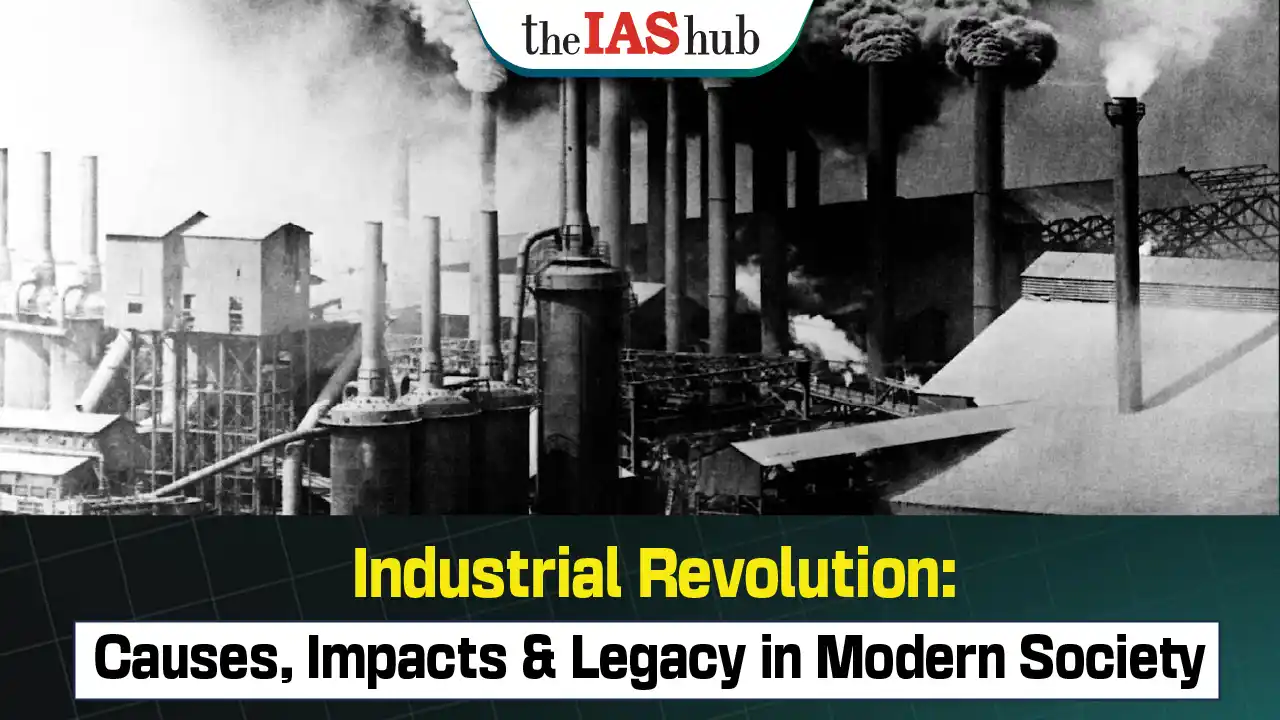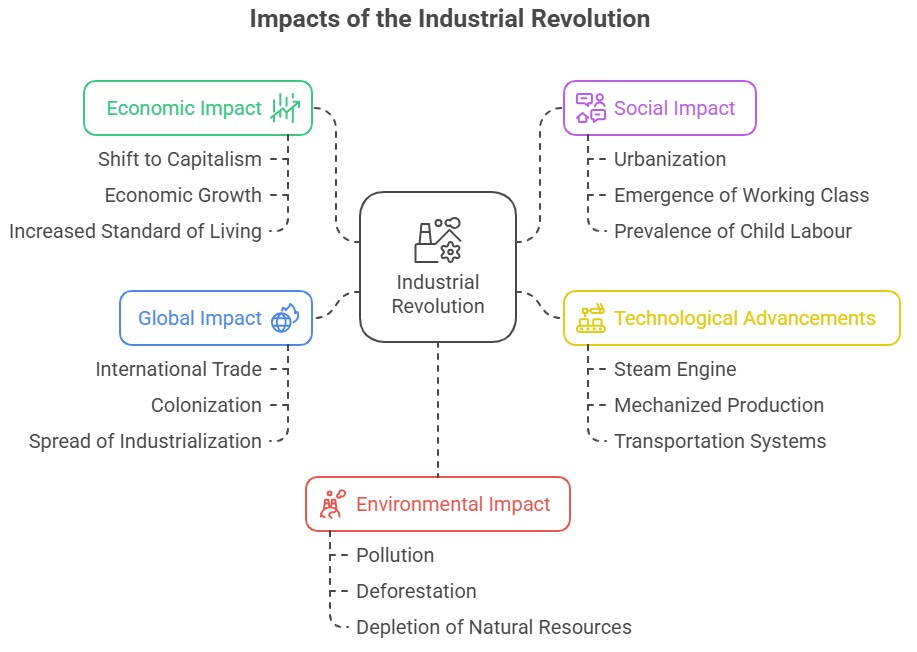Explore the Industrial Revolution's causes and global impacts—from technological innovations and urbanization to economic growth and environmental changes. Understand how this historic shift shaped the modern world and industrial society.


In today's rapidly advancing technological era, where automation and artificial intelligence are reshaping industries, it is essential to reflect on the historical roots of such transformations. The Industrial Revolution serves as a significant milestone in understanding the profound impact of industrialization on societies, economies, and the world at large.
Industrial Revolution was a period of profound transformation in the late 18th and early 19th centuries, characterised by a shift from agrarian, handcrafted economies to machine-based manufacturing and industrialization.
|
Causes of Industrial Revolution |
Developments |
|
Agricultural Revolution |
|
|
Access to Resources |
|
|
Technological Innovations |
|
|
Population Growth |
|
|
Trade and Colonialism |
|
|
Urbanization |
|
|
Capital and Investment |
|
|
Improved Transportation |
|

The Industrial Revolution, spanning the late 18th and early 19th centuries, had a profound and lasting impact on society, economy, and the world at large. It marked a significant shift from agrarian and artisanal economies to industrialized and mechanized systems of production.


Refine your answer writing skills and elevate your UPSC preparation with personalized support and expert feedback.
Fill out the form to get started with the program or any other enquiries !








Are you dreaming of becoming an IAS officer? Then, IAShub can be your best guide. It is one of the Best IAS Coaching in Delhi. Many students who want to clear the UPSC exam join IAShub for learning. The institute gives both online and offline classes. Their teachers are experienced and helpful. They easily explain every topic. Students also get notes, tests, and tips to do well in the exam.
IAShub is in Delhi and is trusted by many UPSC students. It offers coaching for every part of the UPSC exam – Prelims, Mains, and Interview. The classes are simple and easy to understand. The teachers are experts and guide students in the right way. IAShub is also known for its helpful notes, test series, and answer-writing practice. IAShub is the best coaching in Delhi and also gives UPSC Online Classes. This helps students from any place in India to learn. The online classes are live and also recorded. So, students can watch them anytime. These classes cover the full UPSC syllabus.
Here are some important services provided by IAShub:
The UPSC Civil Services Exam has three parts:
This exam is tough, but with the right guidance, it becomes easy to manage. Students must study smart and stay regular.
IAShub supports students from the beginning to the end. It gives the right books, tests, and notes. The classes are easy to follow, and the teachers are always ready to help. Students get personal doubt sessions too. The test series and answer checking help students learn where they need to do better. Also, free study materials save time and money.
IAShub also guides students during the final stage – the interview. Experts take mock interviews and give useful tips. This full support makes IAShub one of the best IAS coaching in Delhi.